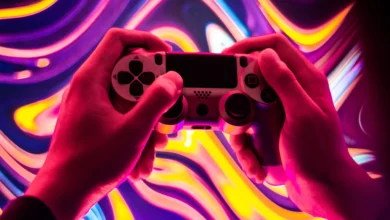Digital Creator Meaning: Exploring the World of Digital Content Creation

Digital creators are the driving forces behind the massive amounts of content we enjoy and consume online today. But what exactly does it mean to be a digital creator? This article will explore the evolving world of digital content creation.
Defining a Digital Creator
A digital creator is an independent digital content publisher across various mediums, including text, audio, video, and images. Digital creators produce original content that informs, educates, inspires, or entertains consumers. They leverage digital tools and platforms to distribute content to audiences worldwide.
Digital creators may go by many names – bloggers, YouTubers, social media influencers, etc. Although their content mediums vary, they share the ability to create, package, and distribute engaging content for online users. Digital creators build audiences around their brands and areas of expertise.

The Evolution of Digital Creators

From Early Internet to Modern Influencers
The concept of everyday digital creators emerged in the late 1990s as personal websites and blogs gained popularity. However, early internet access limitations curtailed the reach of amateur creators. As internet proliferation, powerful creation tools, and social platforms arose in the 2000s, ordinary people gained major distribution powers.
YouTube propelled video creators to fame, while Facebook and Instagram enabled influencer media brands. Better digital tools allowed for designing content and buying online ad space to draw fans. The 2010s saw the rise of social media influencers, YouTubers, and indie bloggers making full-time incomes by leveraging their digital presence and content.
The Impact of Technology on Digital Creation
Ongoing technological advances continue to reshape the digital creation landscape. Smartphones and apps now enable instant content publishing, while AI aids greatly enhance creativity and content customization.
Democratized real-time video technologies empower videographers globally. 3D, AR/VR, and Metaverse content promise more immersive experiences. And NFTs allow ownership opportunities for digital art. The ease of access to powerful technologies will spur more digital creation in the future.
Types of Digital Creators
Digital creators leverage text, audio, video, and other mediums to produce content. Common digital creator categories include:

Bloggers and Writers
Bloggers create written commentary, informational articles, fiction stories, poetry, and more, catering to online readers. Their content may be hosted on blogging platforms, personal websites, or content sites. Top bloggers attract extensive readership and engagement in their niche.
Video Creators and Vloggers
Video creators produce entertaining or informative content for online platforms like YouTube and TikTok. Formats range from sketches and vlogs documenting creators’ lives to educational tutorials. Brand sponsorships empower full-time video careers for top YouTubers.
Social Media Influencers
Social media influencers curate media on Instagram, Facebook, and Twitter to engage specialized niches and build online clout. Their content keeps fans wanting more while promoting products to fuel influencer marketing deals. Micro and macro influencers occupy hierarchy levels based on their reach.
Podcasters and Audio Content Creators
Podcasters create serialized audio programming and distribute episodes to platforms like Spotify and Apple Podcasts. Ranging from highly produced to casual shows, popular podcasts bring sponsors seeking niche audience access. Podcasting’s portability, intimacy, and replay value attract loyal listeners.
Graphic Designers and Visual Artists
Digital illustrators, animators, comic artists, typographers, and graphic designers deploy online visual art tools to craft shareable social media images, digital zines, artistic photos, and more. Their arresting visual art content keeps viral channels buzzing.
The Role of Digital Creators in Today’s Media Landscape
Influencing Consumer Behavior
Prominent digital creators wield significant influence, guiding their niche fans’ brand affinity and purchases through recommendations. Sponsored content and affiliate programs let them monetize ardent followings. Reviews of experience goods like hotels, games, or gear carry weight with creator audiences.
Shaping Public Opinion and Trends
Leading indie bloggers opining about sustainability or politics can stir public discourse. A viral TikTok dance might birth a mainstream craze. Netflix might greenlight film ideas inspired by a podcast. Digital creators thus hold the power to spark conversations and tilt pop cultures through content that strikes a chord.
The Tools and Platforms Used by Digital Creators

Content Creation Software and Applications
Digital creators rely on user-friendly publishing apps and creative programs to produce high-quality online content swiftly. Essential tools include editing software like Final Cut Pro and Adobe Creative Suite, plus engagement-focused platforms such as MailChimp, Canva, Buzzsumo, and Buffer. AI content generation tools also assist newer creators.
Social Media and Distribution Platforms
YouTube, Instagram, podcast apps, and similar social media and media hosting platforms grant digital creators direct access to billions of consumers. Building engaged followers on these sites leads to influence – the currency that attracts sponsors, speaking gigs, and paid creative opportunities. Emerging platforms like Lasso, Rumble, and Substack also offer fresh audiences.
Monetization Strategies for Digital Creators

Advertising and Sponsorships
For top digital creators, income often comes predominantly through sponsorships from relevant brands seeking visibility before engaging niche follower bases that identify with the creators’ content and values. Affiliate marketing also offers commissions for driving conversions. These sponsorships often provide the lion’s share of revenue for successful creators.
Subscription Models and Crowdfunding
Many creators directly monetize their most ardent followers via subscriptions for exclusive content and interactions. Models include fan clubs, paid newsletters, and content restricted to paying members. Creators may also leverage crowdfunding for launching efforts needing upfront investments before providing returns.
Challenges Faced by Digital Creators

Navigating Copyright and Intellectual Property
Digital creators regularly face backlash around incorporating existing intellectual property in videos or posts, leading to copyright strikes that temporarily block earning abilities and engagement options. Understanding fair use provisions and respecting IP helps creators take less risk while remixing pop culture elements for commentary.
Dealing with Online Harassment and Privacy Concerns
Unfortunately, harassment and trolling are still common occurrences for those publishing content openly online. And increased visibility also heightens privacy risks. digital creators must actively moderate comments, enhance account security, keep personal details private, and seek legal remedies in extreme cases – all while dealing with mental health impacts.
The Future of Digital Creation

Emerging Trends and Technologies
Digital creation will continue benefiting from easier content production and distribution enabled by consumer tech innovations. More interactive media like apps, games, AR/VR content leveraging blockchain, Metaverse worlds, and commercial space travel promise creators radically amplified abilities to engage audiences through immersive experiences.
The Growing Importance of Digital Creators in the Global Economy
As more commerce moves online, prominent digital creators will exert stronger influences on customer sentiment and spending globally across sectors like retail, tourism, electronics, and entertainment. A creator’s review could make or break product launches. Hence, businesses will invest more in harnessing creators’ spheres of influence through sponsorships. Many creators may also leverage online followings to launch indie product lines at scale.
Conclusion: The Ever-Evolving Role of Digital Creators
The internet has enabled ordinary people to access global audiences more efficiently than ever. Digital creation tools empower anyone with a smart device to generate text, videos, images, and audio content and distribute them instantly online. digital creators who master audience engagement can build their own media brands and rival traditional outlets’ clout.
As daily life digitizes, these creators will play central roles in curating products, shaping trends, and steering public discourses around entertainment, fashion, technology, and culture online and in real life. Their influence on global consumer behavior will further transform industries.
While optimizing discoverability and earnings will continue requiring nimbleness as algorithms and platforms evolve, resilient creators should grab opportunities to impact society meaningfully. Ultimately, pursuing digital creation allows you to share your perspectives while making a living. And that’s empowerment at your fingertips.
FAQs
What Exactly Does The Term “Digital Creator” Mean?
A digital creator independently publishes original content online across mediums like text, video, audio, images, etc. Digital creators leverage online tools and platforms to produce and distribute content that is entertaining or educates Internet audiences.
What Are Some Common Types Of Digital Creators?
Some major categories include social media influencers, bloggers/writers, YouTubers/video creators, podcasters, and graphic designers/visual artists. Their content mediums vary, but they share a reliance on digital technologies to express themselves creatively and build audiences.
How Do Digital Creators Typically Make Money Online?
Many digital creators monetize through advertising, sponsorships, and affiliates based on the size and engagement of their audiences. Others utilize subscriber models where exclusive content and perks encourage fans to pay recurring fees. Merchandising, virtual events, and crowdfunding projects also contribute to earnings.
What Are Some Rising Trends Impacting Digital Creators?
Emerging trends benefiting digital creators include easier content production apps, AI writing assistants, the Metaverse enabling immersive fan experiences, blockchain and NFTs selling digital art ownership, and gamification through virtual economies. These provide more monetization and engagement opportunities.
Why Are Digital Creators Gaining Importance In The Internet Economy?
As consumers increasingly rely on online reviews and recommendations before purchasing goods, prominent digital creators greatly influence their loyal niche fans’ spending decisions and tastes. This allows the creators to drive consumer behavior from retail to electronics to hospitality sectors. Brand sponsorships will further empower them.





